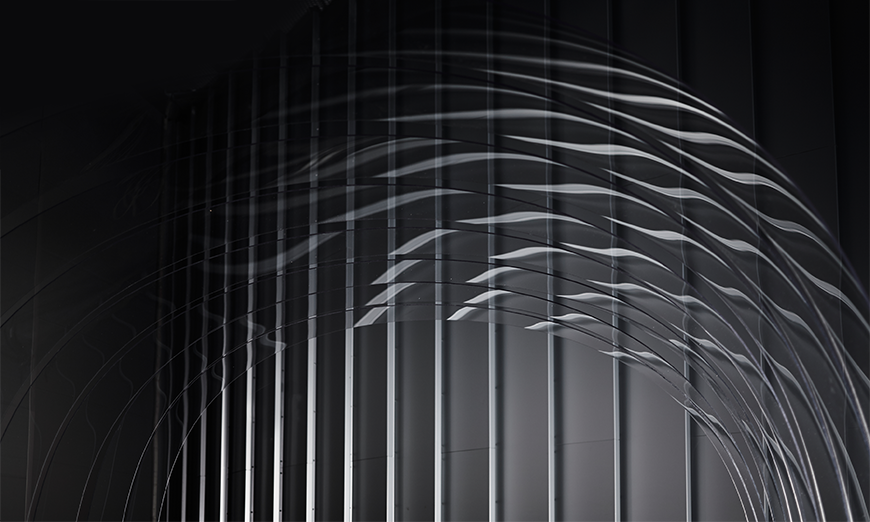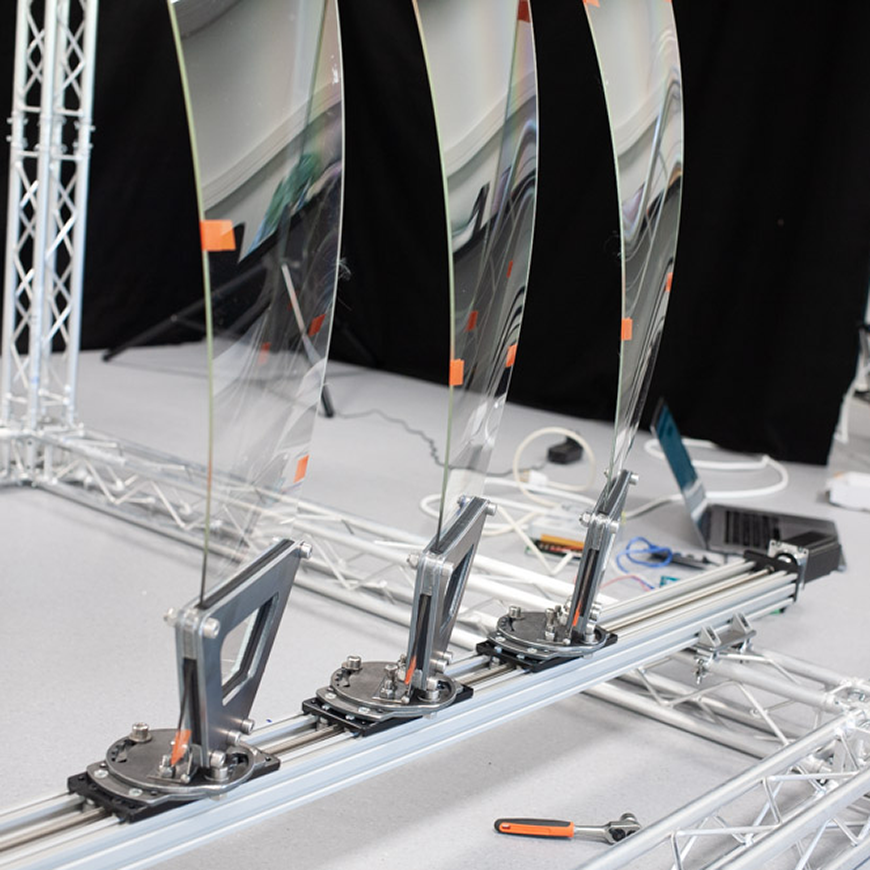Kinetic Environments is a research area in SDU Civil and Architectural Engineering. It is led by Hugo Mulder.
Research in this area is design driven and explores architectural movement (deliberate movement of architecture) as a tectonic phenomenon, considering material technology, mechanisation, structural mechanics, building automation and human occupation.
Developing from specialist building engineering practice, the focus of this research area is the transition towards a sustainable built environment that is flexible, adaptable and humane.
Besides long-standing academic practices, Kinetic Environments seeks to investigate and disseminate through a methodological framework that significantly employs physical prototyping.
Two research projects are currently underway: (1) experimental research in kinetic thin glass for applications in building envelopes, and (2) speculative research exploring the dynamics in occupant-building-environment relations.
Research in this area relies on a network of collaborators in industry and institutions, including Arup, AGC, GXN, and the University of Brighton.
Key publications for the work on thin glass:
Mulder, H. M. (2022). Kinetic Thin Glass [physical prototype, glass, steel, aluminium, motor]. Exhibition at the 5th ICSA conference at the Department of Architecture, Design & Media Technology of Aalborg University.
Mulder, H. M. (2022). Kinetic Thin Glass Building Envelope. In Structures and Architecture A Viable Urban Perspective? (pp. 297-299). CRC Press.
Key publications for the work on dynamic occupant-building-environment relations:
Mulder, H. (2018). Enactive Architecture: Considering the Role of Architectural Movement in Building Cognition. IT-Universitetet i København.
Mulder, H. (2022). Building cognition through material engagement. Frontiers of Architectural Research. https://doi.org/10.1016/j.foar.2022.02.008

